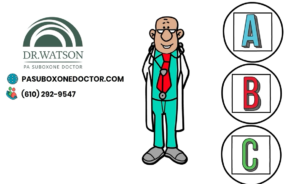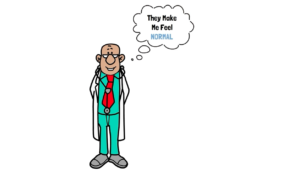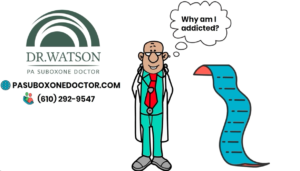Why Am I Addicted (2/3)
The ABCs of Opioid Sensitivity – Why We React Differently
Introduction
In the second installment of Dr. James Watson’s whiteboard video series, we dive deeper into why different people have vastly different experiences with opioids. Dr. Watson’s patients encouraged him to share these insights publicly because they found clarity and hope in understanding their own responses to medication.
Brief Video Description
This video focuses on the ABCs of opioid sensitivity—A-type, B-type, and C-type. Using a relatable story of four friends involved in a car accident, Dr. Watson shows how each friend reacts to an opioid prescription based on their unique brain chemistry.
More Detail on the Script
A-Types (Negative Sensitivity)
- About 5% of people experience intensely unpleasant effects from opioids right away.
- They tend to avoid opioids altogether after a single bad experience.
B-Types (Take-It-or-Leave-It)
- The majority—around 90%—use opioids as prescribed, then stop when their pain subsides.
- They face minimal withdrawal or craving once the medication is no longer needed.
C-Types (Positive Sensitivity)
- Roughly 5% of people feel a sense of clarity, focus, or even normalcy upon first use.
- This heightened response makes them particularly vulnerable to long-term dependence and addiction.
Dr. Watson also references key research, such as the study on Vietnam War veterans, to highlight how environment and personal biology intersect. It’s a compelling explanation that helps demystify why one person develops OUD while another does not.
How It Ties Into the Series
Understanding your “type” is crucial. After exploring the foundational Dependence vs. Genetic Models in the first video, this second chapter shows you exactly why some people can walk away from opioids and others struggle. In the third blog/video, Dr. Watson will address the deep emotional driver for many C-types: the desire to feel normal and how Medication-Assisted Treatment (MAT) can provide solutions.
Call to Action
If you see yourself or a loved one reflected in one of these categories and need personalized treatment, reach out to Dr. Watson’s office. Give us a call or leave a message on our contact page. Our compassionate team is here to guide you toward lasting recovery.







